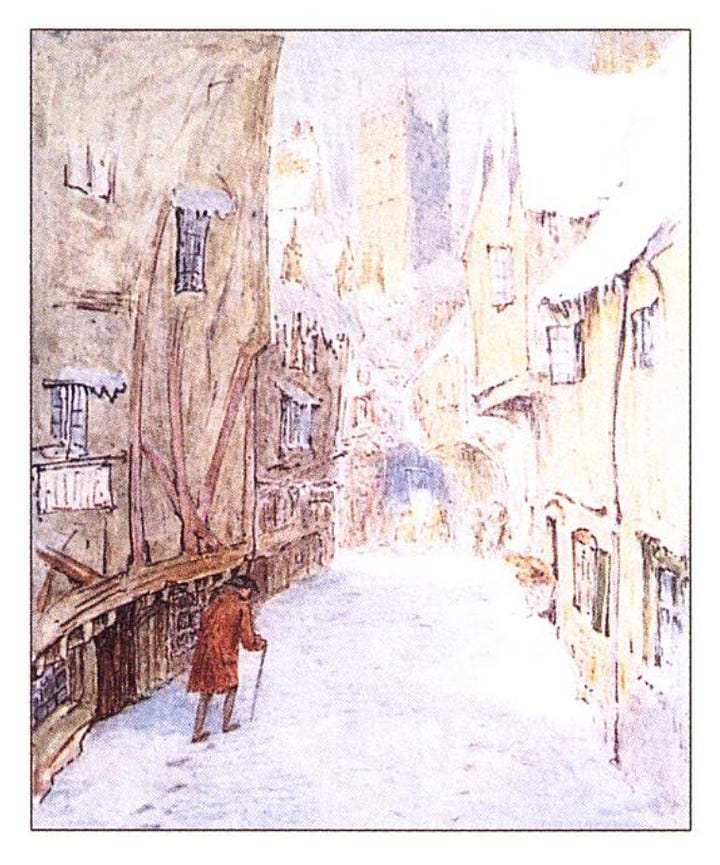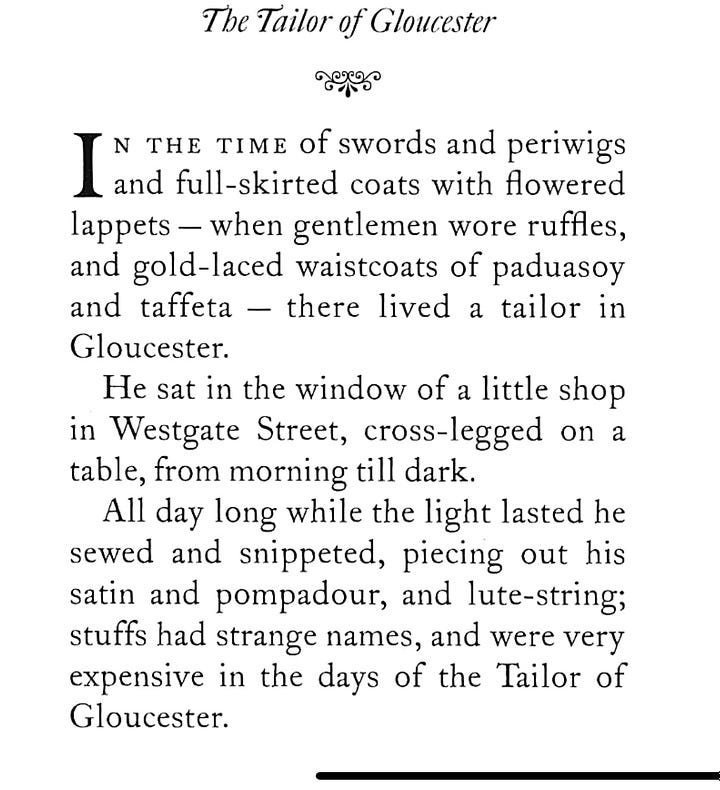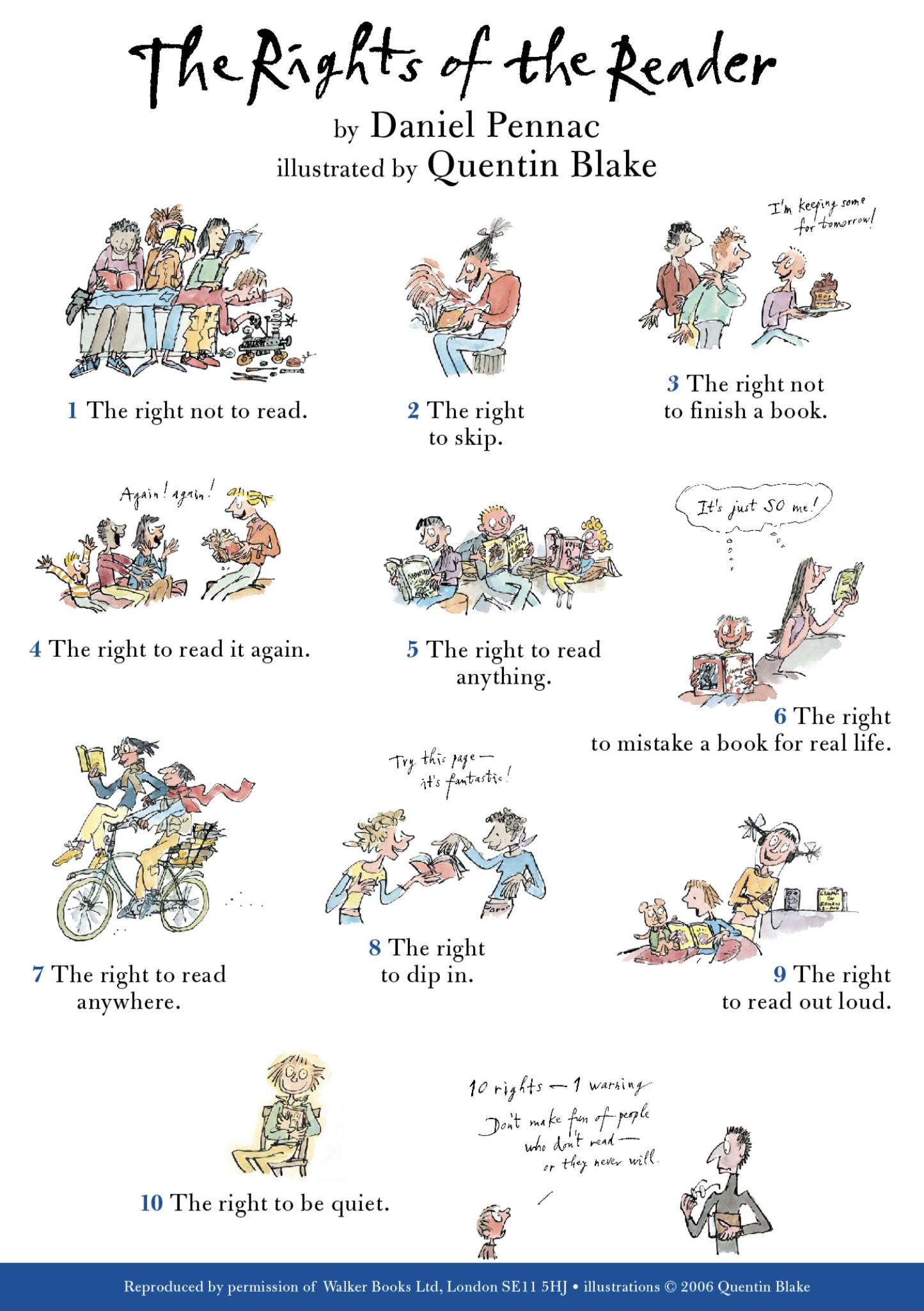Is all reading, good reading? Sarah Miller and Ruth Gaskovski share their wisdom
And John Steinbeck too
Last week I asked the question ‘Is all reading, good reading?’ I’m obviously not the only one to ponder this, because lots of you took the time to share your thoughts and your approaches to this question in your own families. Thank you! It was great to hear from so many different readers.
Today I have thoughts for you on this subject from
and , both of whom are keen readers, and mothers of keen readers. Sarah has kindly let me share her paywalled post What do you do if your child picks up a book you don’t like or approve of? (You’ll find it further down this post), and Ruth has generously lifted the paywall on her post Rehabilitating Ferals of the Digital Age: Eating books, training deep attention, and a practical guide to reading. Ruth also took the time to share her thoughts on the value of classic literature and how to strike a healthy balance.And for a literary take on how to get your children to read great literature, have a look at how John Steinbeck managed it with his own children. Hint: involves lies, reverse psychology, and shameless manipulation.


Ruth Gaskovski and the value of classic literature
We have never been so rich in books. But there has never been a generation where there is so much twaddle in print for children.
Charlotte Mason, 1922
Everything that we consume shapes us. Just as we would not let a child base their whole nourishment on Twinkies, the development of reading should be balanced as well. My approach with our children has been to have high quality classics at the core of our school reading. We used the Mensa Reading List as well as the suggested readings in the Well-Trained Mind. When the children were too young to comfortably read themselves, I would read aloud, or they would listen to them as audiobooks. This trained their attention, expanded their vocabulary, and familiarized them with complex sentence patterns.
In their free time they could choose other books to read. We kept our home library well-stocked and would visit the public library at least once a week. At the library they could pick what they liked, although certain books did stay off limits, because they were just too awful (I remember one about two cave guys that purposely misspelled words that never made it home).
It is a good rule after reading a new book, never to allow yourself another new one till you have read an old one in between. If that is too much for you, you should at least read one old one to every three new ones.
CS Lewis
Classics differ from other books, especially in the attention that they demand from their readers. They require the brain to work harder and better. Deep reading of dense, complex prose is demanding, but provides rich rewards cognitively, aesthetically, and emotionally. They also provide a measuring stick for the depth, language, and complexity that makes a book worthwhile. [Note from Catherine: Perhaps this is why I often notice my children finishing a truly great book and then moving on to something significantly lighter: reading Literature, with a capital ‘L’, takes effort, and they must enjoy the mental break they get by reading some of their favourite trash.]
Now you’ve had a taste of Ruth’s perspective, do take a look at her usually-paywalled post, Rehabilitating Ferals of the Digital Age: Eating books, training deep attention, and a practical guide to reading. It includes some very useful reading lists for both adults and children, ideas for how to get started if your child shows no interest in the classics, and a vocabulary guide for classic literature.
What do you do if your child picks up a book you don’t like or approve of? By
Of course some of my children’s reading choices make me cringe. Not all of them by any means — and they’re getting a lot better at picking better quality titles — but absolutely, I have an instant negative reaction to some of their choices.
But this is what I do:
Nothing.
No-thing.
Nothing.
I don’t think I’ve ever said “no” to a book, straight up, though maybe once upon a time, I would have tried to steer them in another direction. It’s hard to let go of that kind of control; it’s hard to see them picking up poorly written books when I know so many well-written ones are available. It’s hard to overcome the worry that reading something low-quality will shape their reading lives and possibly even who they are.
I hear these arguments. I had all of these thoughts and beliefs at one time.
But I live by what is, in my mind, a much more powerful thesis, which I wrote about in the final section of strategies for raising readers back in March — that though I believe tastes breeds taste, and taste will improve with time, choice is the right of every reader.
That is: every reader has a right to read anything.
I know not everyone — not even every one of you — agrees with me, and that’s fine. That’s the beauty of being intelligent, thinking people — we can listen, consider, and come to our own conclusions about things upon which we disagree.
But with my own children, who have been raised since the very first day of their lives surrounded by excellent, rich, high-quality living books (here’s more about what I mean by “living books”), I don’t worry.
They want to read some Disney princess garbage? Okay. Choice is the right of every reader. Full stop.
There’s another compelling aspect of this issue for me: as the adult, ostensibly the caregiver in this situation, consider your own reading choices: are you always reading The Very Greatest of Great Literature? Be honest. What’s in the stack on your nightstand? Is there anything at all there that might be considered cringe-worthy by someone else’s standards? Is there any genre fiction (crime, fantasy, romance, sci-fi, etc.) in your house? Have you ever bought a gossip magazine from the checkout line at the grocery store?
Do you judge your own reading by the same standards you’re placing on your children’s?
I’m not saying, “Let them read trash all the time! Who cares?!” Their brains are still developing, they are still learning, and we, supposedly, aspire to greater heights than People magazine. (But do we, really?)
I am saying, “Choice is the right of every reader.”
So yes, my kiddos bring home (and have always brought home and will likely always bring home) some books I don’t love, don’t want them to read, find terrible and annoying and think would be better used as, I don’t know, weed barriers in the garden. But I do let them bring them home. Because more than anything else, I want them to know that I support them — that I see and respect their interests and choices even if they are not my own.
And because I know what they’re getting the rest of the time, with me, with my husband, with their grandparents, at daycare, from their teachers at school — and that’s the aforementioned excellent, rich, high-quality living books. I can control my side of things completely — and I do. I do not choose Disney princess books for our read-alouds, nor do I have those books on the shelves in our home. (And let me be clear that Disney princess and other character-franchise books aren’t the only awful books by any means — there are terrible books published daily.)
But if they’re exposed to those kinds of titles maybe 5% of the time they come in contact with books, I can absolutely live with that, because they are people too, and because, have I mentioned? Choice is the right of every reader.
💡 I want to give credit where credit is due: this is not my original idea. I’ve believed this for a long time without being able to put words around it, so I was relieved when I discovered someone else had already done it. Daniel Pennac’s absolutely brilliant book, The Rights of the Reader, is short, compelling, and will change your mind completely if you don’t already believe or agree with me.
Quentin Blake, the book’s illustrator, made this lovely poster of The Rights of the Reader, which is a great way to understand the ideas if you’re not planning to dive deeper. You can see his point about choice in Right #5 — The right to read anything.
Yours in doing nothing 😉
Sarah, Can We Read
Thank you for reading. If you’re not subscribed to How We Homeschool, sign up for free and never miss a post.





This is so interesting! I have a different take than Sarah regarding restricting children's reading, but I think she and I would agree that sheltering children entirely from ideas and books with which you disagree (and even think harmful) is not a good idea longterm. I do restrict what my children may read, but largely because I wish to introduce them to certain moral and sexual things myself in the time and manner that I think is best.
But as children grow, I think that it is better to enter into the adult intellectual world in conversation rather than act as though children are not entering into this world or should not enter into this world. They will be independent within this world at one time or another, and pretending that this world doesn't exist or that it can be entirely shut out is dishonest and abdicates parental responsibility, in my opinion.
I happened to write something in this vein today, here:
https://thehollow.substack.com/p/introducing-children-to-mature-reading
Love the Steinbeck story! ha ha! Cracks me up. I do have one question for reading that I find a little tricky - is what can you do when you live in foreign countries/traveling or don't have access to libraries? I want to keep away from screens, but it can be tricky getting good books (especially when you are on the road) in English. We have sometimes ended up with some random books - as they were the only ones in English...